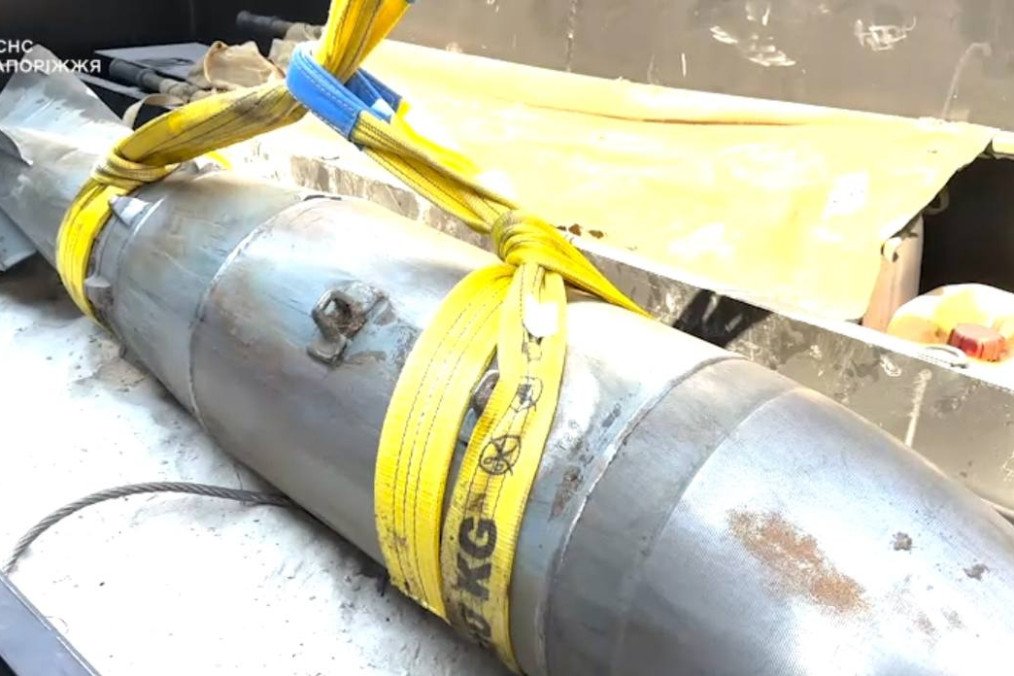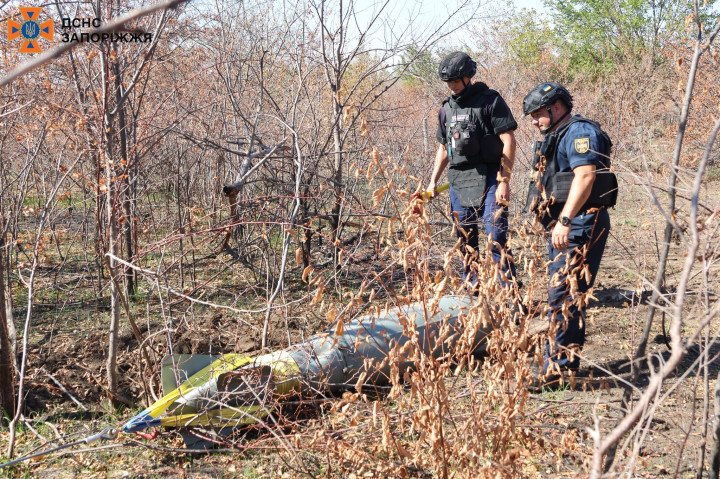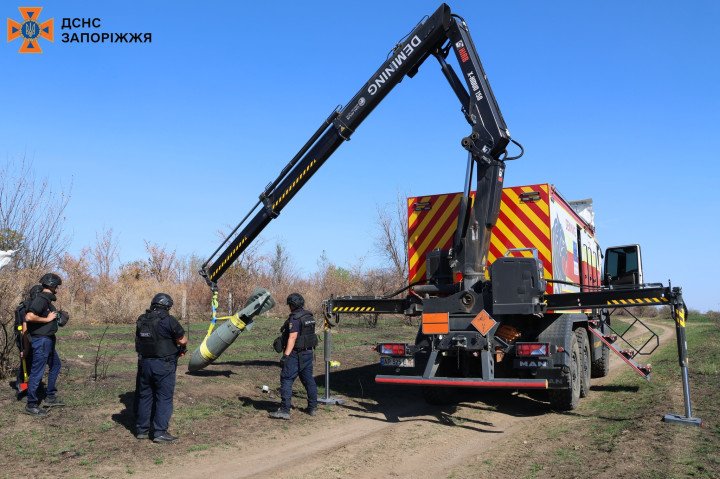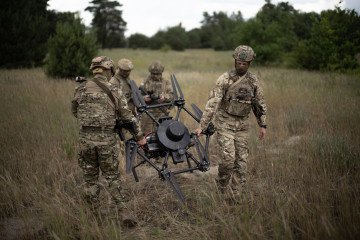- Category
- Latest news
Russia’s New Guided Aerial Bombs Can Now Strike Further, Reaching Cities Like Zaporizhzhia

On September 23, Russian forces struck the center of Ukraine’s Zaporizhzhia with guided aerial bombs for the first time. According to the latest data, at least 21 people were injured and infrastructure was damaged as a result of the attack.
Why is this a big deal?
At least 7 guided aerial bombs were dropped on the city. Among them, a five-hundred-kilogram high-explosive bomb (FAB-500) was found unexploded by the State Emergency Service of Ukraine. According to the Institute for the Study of War the FAB-500 “hold an explosive weight of 150 kilograms, have a damage radius of 250 meters, and can destroy headquarters, warehouses, and concrete and reinforced concrete objects.”
Guided aerial bombs are equipped with aerodynamic surfaces and guidance systems that enhance their precision. According to Ukrainian OSINT analysts, Russian forces have begun using new unified gliding and correction modules (UMPK) to extend the range of these bombs to up to 100 km. This allows Russian aircraft to strike from a distance, reducing their exposure to Ukrainian air defenses.

To drop guided aerial bombs, Russian aircraft do not enter the zone of influence of Ukrainian air defense. To strike, Russian aircraft fly up to the line of combat engagement, 40-50 km away, after which they launch the guided aerial bombs.
The Ukrainian Air Force reports that anti-aircraft missile systems such as the S-300 can intercept targets up to 75 km away, while the Buk-M1 has a range of 35 km. However, deploying these systems too close to the front lines would make them prime targets for Russian forces.
Ukraine has long been advocating to get permission for strikes deep into Russian territory with American and European long-range missiles. This would allow Kyiv to destroy both the aircraft and the airfields where they are stationed, therefore preventing Russian future strikes and civilian casualties.

-f88628fa403b11af0b72ec7b062ce954.jpeg)

-c439b7bd9030ecf9d5a4287dc361ba31.jpg)

-111f0e5095e02c02446ffed57bfb0ab1.jpeg)

